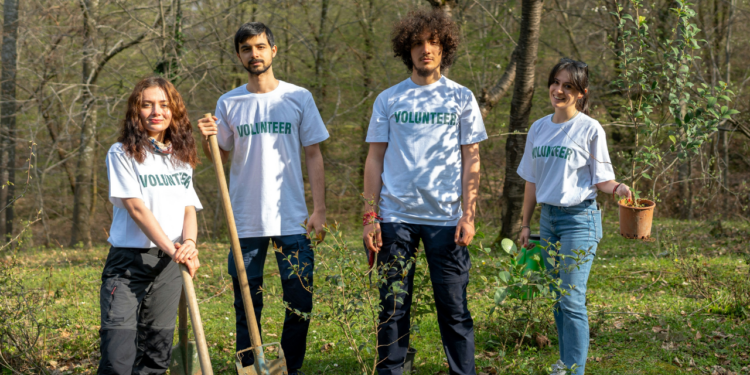- Nearly half of U.S. adults experience loneliness, with a lack of community and purpose as key factors.
- Impact programs and volunteerism help employees connect, improve mental health, and boost company culture.
- Gen Z and Millennials prioritize work-life balance, positive culture, and meaningful work in choosing employers.
Nearly half of U.S. adults report experiencing measurable levels of loneliness, according to the U.S. Department of Health and Human Services. In fact, loneliness and isolation have reached crisis levels, prompting U.S. Surgeon General Dr. Vivek H. Murthy to craft a warning to America in his closing letter to the country: “I’ve discovered something deeply disturbing: this sense of community has eroded for too many of us, with alarming consequences.”
As Murthy says, “Right now, many people don’t have a clear sense of purpose. In one recent study from the Harvard Graduate School of Education, 58% of 18- to 25-years-olds said they have low, or no sense of purpose or meaning in life. We must change this.“
One way companies can bring a sense of community and belonging is with impact programs and volunteerism — statistics show that 86% of employees say it’s important to work for a company whose values align with their own. And 81% want to work for a company that has socially responsible business practices.
The Power of Workplace Impact Programs
Impact programs offer a promising approach that enables companies to bring employees together, fostering greater personal well-being and a positive company culture in the process.
By providing employees with meaningful and purposeful reasons to come together, whether in the office or through other forms of collaboration, these initiatives can help mitigate feelings of isolation and improve mental health.
This holistic approach is particularly important to the younger generations of employees who prioritize both a meaningful career along with their well-being.
About 25% of Gen Z and 31% of Millennials rank a good work-life balance as the highest factor when choosing where to work, while a positive workplace culture is most important to nearly one-fifth of both generations, according to research from Deloitte.
Growing up with an understanding of the importance of mental health and self-care, they look for specific qualities, such as a positive workplace culture, flexible working hours, opportunities to progress in their careers, and meaningful work, in employers.
Volunteerism: A Tool for Connection and Wellbeing
As Murthy said in his letter, three core elements make community possible: relationships, service, and purpose. Together, they create the ecosystem of meaning and belonging that are essential for fulfillment in the future of work.
Impact programs that focus on volunteerism are particularly powerful. These activities have been proven to connect people, foster well-being and build a strong company culture.
Employees who participate in volunteer activities report benefiting from higher morale and are happier overall. One survey found that when volunteering, employees were happier; their mental well-being, self-esteem and self-confidence improved, and they were less stressed.
According to PagerDuty’s FY24 Impact Report, 96% of employees participated in the company’s volunteer, giving, and/or 1:1 donation match program to support a cause they care about, and 86% said the company’s impact efforts made them proud to work there. The company’s internal data analysis found volunteerism, giving, and participation in impact programs to be positive retention indicators.
Volunteerism not only provides a valid and purposeful reason for employees to come together, it also helps counteract stress, depression and anxiety through the positive impact of helping others.
By integrating volunteer opportunities into their impact programs, companies can make a meaningful difference in the lives of their employees, helping them feel valued and supported, which ultimately contributes to a healthier, more connected workforce.















